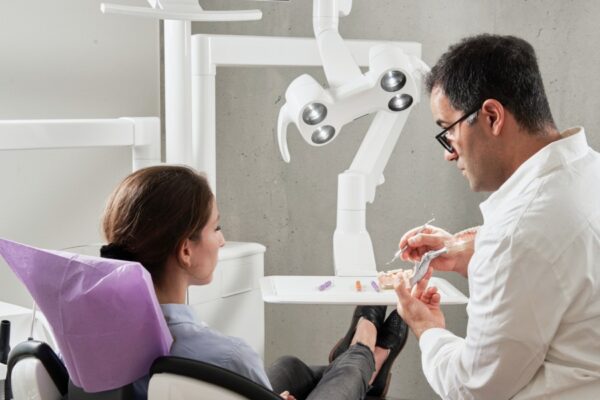Remote Medical Interpretation Services
The coronavirus has greatly increased the need for remote medical interpretation services as important and efficient healthcare is shifting in response and using telehealth and telemedicine services during pandemics and for more rural and isolated locations. Before the coronavirus pandemic, certified medical interpreters were seen as an inconvenience by many doctors and patients. In cases where they were necessary, it was common to use friends or family members to serve as the medical interpreters despite their lack of linguistic skills or any expertise with very specific medical terminology. Keep reading to find how healthcare positions are shifting in response to the coronavirus.
The very specific nature of medical terminology, especially in respiratory diseases such as the Covid-19 outbreak, make it imperative that any medical interpreter be very precise in their translation. The difference between phlegm and mucus could very well make the difference between a successful treatment and the continued transmission of the disease as a misdiagnosed patient unknowingly passed it on during their normal daily routine.
Other language specialists have also seen shifting in response to an increase in work given the global fight against the coronavirus outbreak, as medical and academic institutions around the world work with agencies like the World Health Organization to quickly and accurately translate medical research and disseminate it to other agencies around the world.
In just a few short (or incredibly long, depending on your perspective) months, COVID-19 has changed the world in countless ways. As the illness continues to spread globally and throughout the United States, healthcare workers have been in higher demand than ever before. The number of coronavirus-related job openings continues to rise, and healthcare positions are shifting to meet the ever-evolving needs of those impacted by COVID-19.
While a record number of people have filed for unemployment benefits in the wake of the pandemic, the healthcare sector is still hiring and even creating new positions and career opportunities that did not exist before the outbreak of the novel coronavirus. Learn more about how healthcare positions are shifting in response to COVID-19 pandemic.
Increased Demand for Travel Nurses
If you love throwing on your favorite nursing scrubs and treating patients in various locations rather than in a single facility, you’re in luck. The already-high demand for travel nurses has increased in the wake of the coronavirus, so if you’re seeking a job opportunity that will allow you to travel the nation (or even the world!) while caring for sick patients, now is a great time to take the plunge.
Firms that employ travel nurses are currently seeking individuals to deploy to hard-hit areas. They need people who can travel to various hospitals and other facilities to meet the increased demand for healthcare workers.
Even once we move beyond the current pandemic, the demand for nurses who are willing to travel will likely remain high. Travel nurses ease the burden faced by many understaffed medical facilities and ensure that there will be someone to do the job if and when another healthcare crisis strikes.
New Healthcare Positions
According to Glassdoor, there has been a huge surge in virus-related employment opportunities. While some are for traditional roles, such as physicians, nurses and epidemiologists, there are also many brand-new roles that did not exist before the outbreak of COVID-19.
Among the traditional positions that need to be filled in light of the virus, there is a demand for registered nurses to perform coronavirus phone screenings, a need for physicians who will work with various telehealth platforms to provide services to patients via videos and even opportunities to work in call centers providing up-to-date COVID-19 information or in medical facilities providing testing resources and other information to members of the community.
In addition, various organizations are now hiring people for contact tracing to help determine who COVID-19 patients have been in contact with and help slow the spread of the virus. While contact tracing has been practiced in some capacity for decades, the demand for employees to do this job has exploded in the wake of the coronavirus.
Enhanced Demand for Telehealth Providers

Before the coronavirus pandemic, the use of telehealth in the United States was rather limited. State and federal restrictions often made it difficult for healthcare providers to offer online services in any sort of meaningful way and, in some areas, doing so was illegal.
In the wake of the virus and stay-at-home orders, however, many of those restrictions have been loosened or eliminated altogether. In fact, the emergence of more telehealth services is arguably one of the few good things that has come from the current pandemic.
As more organizations have begun offering services via phone and video chat, the demand for telehealth practitioners has increased dramatically. While many physicians working in private practice have begun offering these services to their patients, companies that specialize in telemedicine have also emerged and are seeking qualified doctors to provide services to patients via video.
Telehealth services are easier and more convenient for many patients. They also protect the elderly and at-risk population by allowing patients to stay home rather than visiting healthcare facilities where germs, viruses and bacteria are often present. In addition, caring for sick patients via phone or video chat means that vital healthcare workers are not directly exposed to infectious diseases. This, of course, protects them and helps ensure that they will remain able to care for the patients who need it most. For these reasons, the demand for telehealth providers will likely remain high long after we overcome the current pandemic.
Greater Number of Temporary Positions
As hospitals and other facilities work are shifting in response to keep up with evolving needs in the face of the pandemic, temporary positions are becoming more widely available. Many facilities are seeking people to work short-term to fill voids left by employees who have contracted the virus or have been exposed to it and are required to self-quarantine. Temporary workers are also needed in certain areas when there are spikes in the number of patients who are in need of care.
Higher Demand for Support Staff

While doctors and nurses may be the first healthcare workers to come to mind, they aren’t the only ones who are in high demand. From aides and technicians who provide direct patient care to the janitorial staff and the workers who are responsible for laundering the scrubs for men and women working the frontlines, there is currently an increased demand for virtually all of the workers needed to keep a hospital or any other type of healthcare facility running smoothly.
This is, of course, excellent news for anyone interested in beginning a career in healthcare. There are currently many openings for lower-level positions that do not require specific education or certifications. While many industries are facing mass furloughs and businesses are ceasing operations, you could embark on a brand-new career by starting in an unskilled healthcare position and working your way up.
Conclusion
Healthcare positions are shifting in response to the coronavirus. Needs have changed, and there is more demand than ever for people who are willing and able to fill various roles. From physicians and surgeons to administrative assistants and maintenance workers, the coronavirus has increased the demand for people in all sectors of the healthcare industry.





